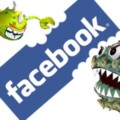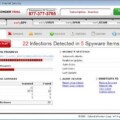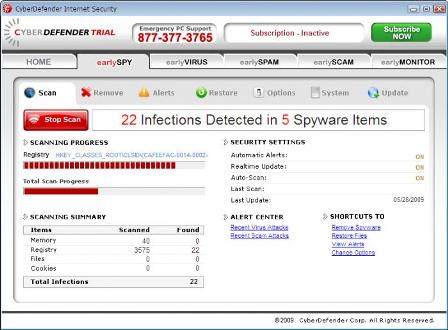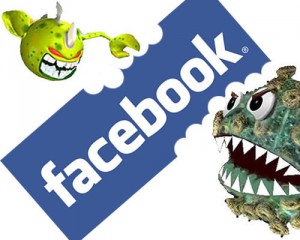Heeding Spyware Prevention Tips Don’t Provide 100% Data Safety
We All Lost Data at One Time or Another
Even I have a lost a bit of data in the past. I should know better, but I didn’t take the time to back-up my most recent work while I was on the road. Whatever the reason you find yourself in a data recovery situation, DriveSavers has consistently helped my customers recover data that I thought would have been a lost cause.
Heeding Spyware Prevention Tips Won’t Guarantee Your Data Will Always be Safe
I always preach securing your computer with my spyware prevention tips, but even with the best spyware prevention shields up, for one reason or another, some malware might still get through, and in some cases, can ultimately cause you to end up in a data loss situation because of a hard drive gone bad (check back later for an article about a common scenario that leads to premature hard drive failures).
Reliable Solution for Recovering Your Lost Data
But even if you think you just lost your life’s work and feel distressed, DriveSavers can help. I admit that they are expensive, but they are also very successful. If your data is extremely important to you, and you must get it back, turn-off your computer (don’t make it worse by trying to “hope” it will work all of the sudden), and call DriveSavers. Check out their website for professional tips about the best practices for data safety.
Need Help Now?
- Live Data Recovery Advisors 24/7/365
- Fastest standard service at 1-2 days
- Learn more about DriveSavers Data Recovery
If you feel this information has helped you, please consider making a modest donation to help keep this website going.
What Does Your Online Reputation Say About You?

I just wanted to share a page with a video about whether online information affects your reputation? See what people in the United States and the U.K. say about managing their privacy and online reputation.
http://www.microsoft.com/privacy/dpd/default.aspx

If you feel this information has helped you, please consider making a modest donation to help keep this website going.
3 Mistakes to Avoid Getting the Koobface Virus in Facebook

The Koobface Virus spreading through Facebook is catching Facebook users off-guard by deceiving them into clicking on a message that supposedly contains an embarrassing video of themselves. The message even appears to come from a Facebook friend. Listen to the audio below by Dale Powell about the 3 mistakes to avoid to prevent getting this type of infection, virus and spyware prevention tips can go a long way if “actually” implemented.
If you feel this information has helped you, please consider making a modest donation to help keep this website going.
DoubleMySpeed.com – CyberDefender Review

Many people have seen the popular DoubleMySpeed.com TV Commercial and can relate to the frustration of having a slow computer. But are the commercial’s claims true, that their software can actually double the speed of “your” computer?
Take a moment and listen to the DoubleMySpeed audio review by Dale Powell (aka the SpywarePreventionGuy) and decide for yourself.
The product they are offering is actually called CyberDefender, which you must know is NOT certified by ICSA Labs, WestCoast Labs, Virus Bulletin (VB100), or AV-Comparative virus testing and certification companies. All the major computer and internet security software companies such as Eset Nod32 (my favorite), Symantec and McAfee are all certified by these 4 companies. Their product also appears to be targeted at consumers instead of businesses. They do not offer any business enterprise security products.
You will also find out that they don’t list any prices on their www.doublemyspeed.com website, but they usually tailor their solution with a combination of products costing about $49.00 (and this seems to vary). You can get more information from their www.cyberdefender.com website. But if you call their customer service line for help, you will find that they are very motivated in up-selling their “Live Help Desk” product for $249.00.

Many technicians will tell you that it takes several different reputable products to clean and tune-up the performance of a computer, not to mention manual procedures that only a live person can perform. Perform a search with your favorite search engine to find out actual customer experiences with CyberDefender, you will quickly develop an informed opinion on your own about whether you should purchase their software. You can also checkout the Ripoff Report to read about some CyberDefender experiences as well.
Below are some reputable alternatives to CyberDefender that I personally recommend and use regularly myself:
ESET Nod32 Antivirus: Free 30 Day Trial
SUPERAntiSpyware: Free 15 Day Trial
CCleaner: Freeware (Checkout my Free CCleaner Video Tutorial)
With all the competitively priced “certified” products on the market, please do your research first before taking a chance with your computer health and internet security. It might be hard to choose what you “will” use, but it will be easy to decide what you “won’t” use. I hope this review helps you to decide.
If you feel this information has helped you, please consider making a modest donation to help keep this website going.
Can Windows 7 Get Viruses?
Yes, Windows 7 gets chased by viruses and can in fact get both virus and malware infections! In fact, we have already started to have Windows 7 based computers carried into our shop for virus removal. The spyware prevention tips you have been learning for previous Windows versions still apply for Windows 7.
But in defense of Windows 7, I will have to say that these internet surfers either let their trial antivirus products expire, or they just practiced the same naive internet surfing habits we see no matter what operating system they use. In other words…it was preventable!
I have installed Windows 7 Ultimate on 3 of my computers so far and am more than satisfied. While I have heard of people having issues even upgrading, I’ll bet that they have some form of malware, application or driver incompatibility that they didn’t resolve before upgrading. Please run and heed the results from the Windows 7 Upgrade Advisor before actually upgrading. And by all means, don’t try to upgrade an infected computer!! It could prevent the upgrade from installing properly and you may just end up with a broken computer.
Moving on…Windows 7 boasts a much improved version of its built-in firewall, scaleable User Account Control, as well as Windows Defender for malware protection. If you have no or expired antivirus software, you might at least install Microsoft Security Essentials which is available for free from Microsoft. I haven’t seen enough computers using this product to form an opinion yet, but as I usually say, freeware usually only offers “basic protection”.
So although the threats are still out there, Windows 7 is a bit harder to infect and when it does get infected, I can say that it is much easier to disinfect than the same infection on a Windows XP computer. With that said, why not learn more about prevention. Use a Standard User account for your internet surfing, make sure you use multi-layered protection with top-tier antivirus and antispyware products, links scanners, and always do your homework before clicking that link.
How Did My Computer Get a Spyware Infection?

In my role as a computer grief counselor, I hear customer after customer cry out “How did I get infected, I’ve got “that antivirus program from the yellow box?” While I’m not going to make this article into a smear campaign about how I don’t like that antivirus program in the yellow box…or the red box for that matter, there are several other lesser known products that I see trojans get past on a daily basis. Keep reading and I’ll tell you the name of the antivirus product that we have come to know as the very best antivirus product available.

Virus FREE Computer
Most customers come in with a pretty good idea they have a virus infection. The truth is that only about 3% of the computers we see actually have a traditional virus. Usually it ends up being some form of malware, but not true viruses, but they will all probably make your computer very slow.



